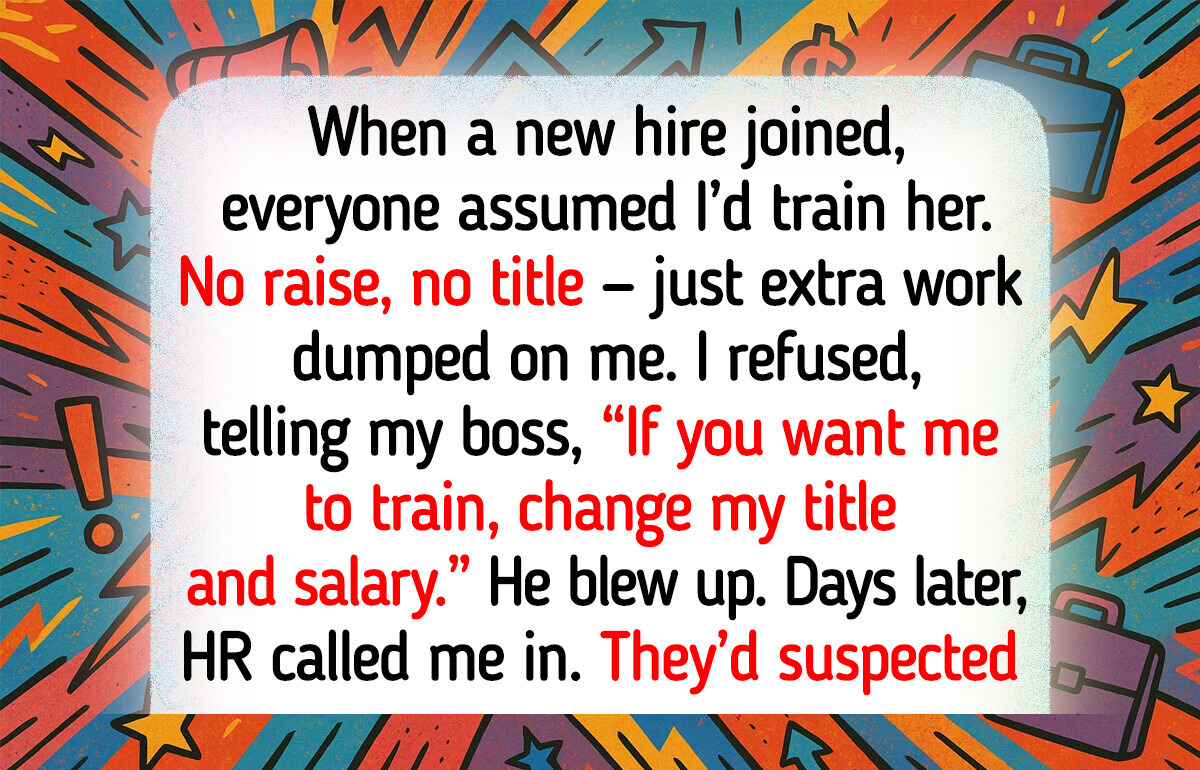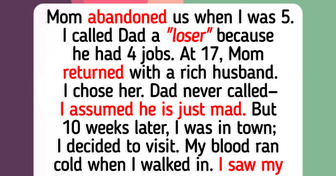Yes there's always more under told story great job 👍👍👍👍
I Refused to Train the New Hire — Then HR Dropped a Bombshell

We’ve all been there: asked to “be a team player,” only to realize it means taking on someone else’s workload without recognition. That’s exactly what happened to one of our readers. After years of strong results and zero promotion, her boss expected her to train a brand-new hire.
The letter:
“Hi Bright Side team,
When a new hire joined my team, everyone assumed I’d be the one to train her. Nobody asked me — they just dumped it on my plate like it was automatic. For weeks, emails kept piling in: ‘Can you walk her through this?’ ‘She’ll shadow you, right?’ I ignored most of them. My workload was already insane, and I wasn’t going to sink hours into hand-holding when I hadn’t even been given a raise in years.
Eventually, my boss cornered me: ‘Why aren’t you training her?’ I told him flat-out, ‘Because I’m not being paid to. If you want me to take on training, change my title and salary.’ He stormed out, clearly pissed.
Two days later, HR called me in. My stomach dropped — I thought I was getting written up. Instead, they wanted details. Turns out, complaints about my boss had been stacking up, and my refusal to train was the last straw that made them dig deeper. They suspected my boss wanted to replace me with the newbie.
Fast-forward a month: my boss ‘stepped down,’ the new hire reassigned by herself, and HR offered me a formal promotion with a raise to lead the team. Saying no didn’t just save me extra work — it exposed a bigger problem I didn’t even realize I was a part of.”

Do You Get Paid for Mandatory Training at Work?
👉 If you’re on minimum wage (or close to it):
Training time has to be paid for. Otherwise, your hourly rate drops below the legal minimum — and that’s simply not allowed.
👉 If you earn more than minimum wage:
It’s a bit less clear. Some companies count training as part of your normal pay. But if it happens outside your usual hours, take a peek at your contract. Still confused? A quick chat with your manager or HR can save you from surprises later.
Psychological Effects of Being Asked to Train Without Recognition
It’s easy to feel discouraged when you pour your skills and hard-earned knowledge into a job, only to be asked to train others without so much as a thank-you, let alone extra pay. Over time, this doesn’t just sting — it chips away at motivation and makes burnout more likely.
Psychologists even have a name for it: the “overjustification effect.” When you’re pushed to do more without fair reward, your natural drive to help or take pride in your work can actually fade.
And it’s not just about frustration. The World Health Organization warns that heavy workloads without fairness or support are a real risk factor for mental health struggles at work. Adding unpaid training on top of your regular duties only increases the pressure.
At the end of the day, training someone shouldn’t mean training away your own worth — the best workplaces are built on fairness, recognition, and respect.
I Refused to Let Coworkers Steal From Me—Maybe I Overreacted
Comments
Related Reads
12 Stories So Wild They Might Break the Internet

My Cousin Uninvited Me to Save Money—My Petty Revenge Was Absolutely Worth It

I Refused to Expose My Salary to My Parents, Now My Life Is Falling Apart

I Refused to Let My Boyfriend Discipline My Child—He’s Not His Real Dad

I Refuse to Let a Strange Lady Touch My Rare Birthmark for "Good Luck"—Now I’m Being Threatened

16 Moments That Show Kindness Is the Strength the World Needs

My Mom Forgot About Me Until She Needed My Help—I Turned the Tables on Her

10 Hospital Workers Who Prove Kind Heart Is a Powerful Medicine

16 Families Whose Everyday Life Is Basically a Sitcom

I Refuse to Be My Mom’s Retirement Plan After She Chose to Stay Home Her Whole Life

My Parents Wanted a ‘Family Vacation’ on My Budget—I Made One Move They Didn’t Expect

15 Stories That Show Kindness Is a Quiet Language the World Needs

